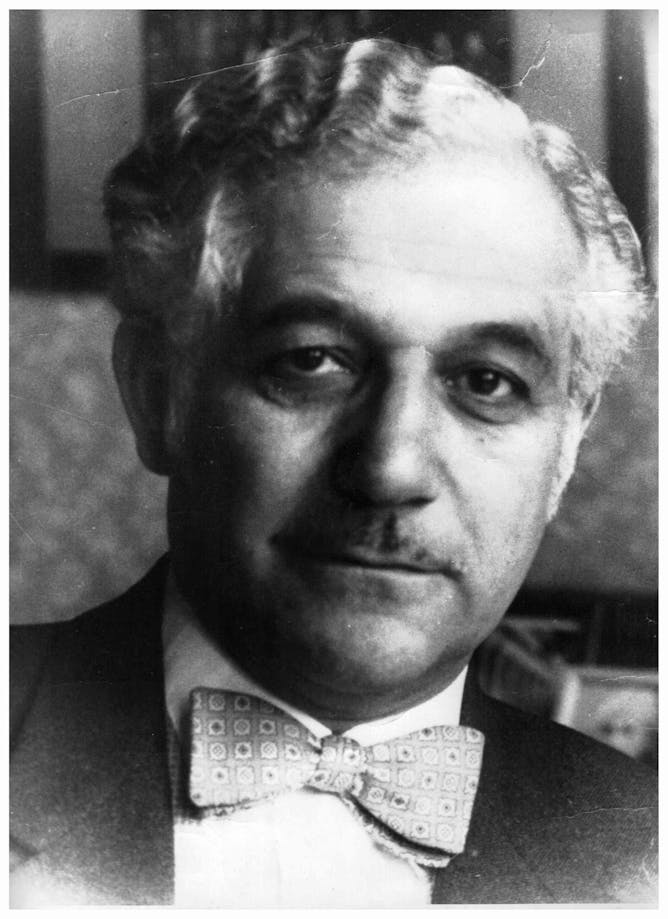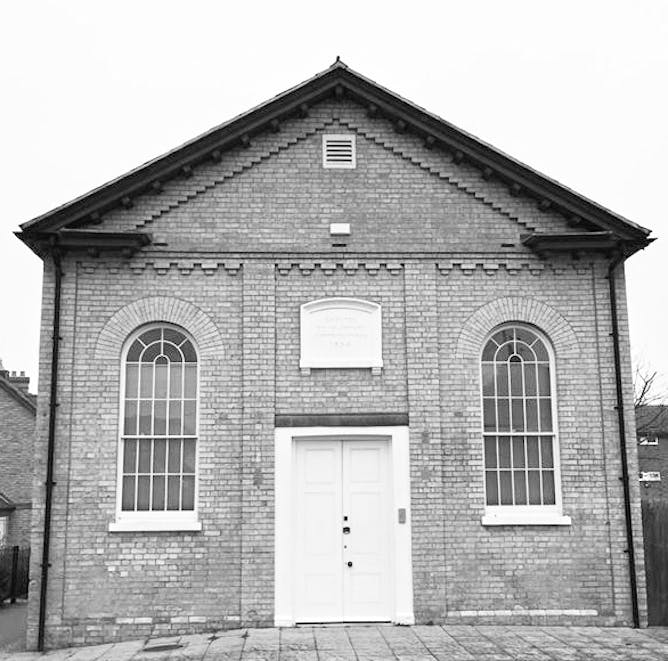Mr Hasan Balyuzi – the founder

Hasan Muvaqqar Balyuzi was a Bahá’í and an Afnán. The Afnán are the kindred of the Báb, the forerunner to Bahá’u’lláh, the founder of the Bahá’í Faith. Bahá’u’lláh called upon each Afnán to ‘perform praiseworthy deeds’, to have an ‘upright character’ and to be an example of steadfastness to other Bahá’ís. Mr Balyuzi’s great-grandfather – and that of Shoghi Effendi – was Hájí Mírzá Abu’l- Qásim, one of the two brothers of Khadíjih Bagum, the wife of the Báb. Mr Balyuzi himself had a distinguished career as a broadcaster, helping to found the Persian Service of the British Broadcasting Corporation (BBC). He contributed numerous programmes to this Service on a wide variety of subjects such as English literature, European history, Persian literature and history, and current affairs.
In addition, Mr Balyuzi was a distinguished member of the Bahá’í community. He was for many years a member and chairman of the National Spiritual Assembly of the Bahá’ís of the British Isles and was named by Shoghi Effendi the Guardian of the Bahá’í Faith as one of the Hands of the Cause, the most distinguished station in the Bahá’í Faith. Mr Balyuzi was called by the Universal House of Justice one of the Bahá’í world’s ‘most powerful defenders’ and ‘most resourceful historians’ who produced ‘outstanding literary works’. It was the House of Justice’s prayer that Mr Balyuzi’s ‘exemplary achievements’ his qualities of steadfastness, patience and humility and his ‘outstanding scholarly pursuits’ would ‘inspire many devoted workers’ among the ‘rising generations’ to follow in his ‘glorious footsteps’.
In the course of his life and work, he built up a large library with books on the Bahá’í Faith, Middle Eastern history and culture, Persian Literature as well as having a vast correspondence with many individuals across the world. All of this forms the core of the Afnan Library.
History of the Afnan Library

Hand of the Cause Mr Balyuzi, in a codicil to his will, nominated his wife, Molly Balyuzi during her lifetime, his son Robert Balyuzi (and in perpetuity his family) and Moojan Momen (and in perpetuity his family) to found and develop a research library ‘for the benefit of all who seek knowledge’, using as the basis of the library Mr Balyuzi’s extensive collection of papers, books, manuscripts, photographs and newspaper cuttings. The library was to be founded in the name of Muvaqqaru’d- Dawlih and his wife Munavvar Khánum, to be dedicated to Khadíjih Bagum, the wife of the Báb, and to be named the Afnan Library. To fulfil this wish, the Afnan Library Trust was established as an independent charity in 1985, with the National Spiritual Assembly as the fourth Trustee, as was the wish of Mr Balyuzi.
In a letter to the Trustees, the Universal House of Justice wrote that it ‘views the final accomplishment of the wishes of the late Hand of the Cause as of the very greatest importance.’ The deeds of the Trust setting it up as a charity were drawn up in consultation with the National Spiritual Assembly and their final form was sent to the Universal House of Justice for its approval. After attempts to establish the library in Uxbridge, North London and Tonbridge, all of which proved unworkable for various reasons, in 2013, the Afnan Library Trust acquired a suitable property in Sandy, Bedfordshire.
The Trustees have attempted over the ensuing years to fulfil the wishes of Mr Balyuzi and develop the Library. Many books, manuscripts and other archival material have been added to the library. Many outstanding Bahá’ís have donated their own libraries and materials to the Afnan Library, such that the Library today is now home to over 20 other collections, including those of Counsellor Dorothy Ferraby, Philip Hainsworth, Hormuzdiar Sabet, Claudia Coles, Mahmud Vargha, Betty Reed, Abul-Qasim Afnan and many others.
Subject areas covered by the library
The main subject area of the Library is the study of all aspects of the Bahá’í Faith. It also covers associated subject areas such as the history and culture of Iran and the Middle East, the study of religion and comparative religion.
It seeks to do this by acquiring and maintaining as comprehensive as possible a collection of books and other published materials published in the English, Persian and Arabic languages on these subject areas. It also collects books and other published materials on these subject areas in other languages, where these are not translations of works already published in English, Persian or Arabic. It also maintains the papers, photographs and other items that belonged to the late Mr Balyuzi and seeks to acquire similar collections of materials related to the Bahá’í Faith.